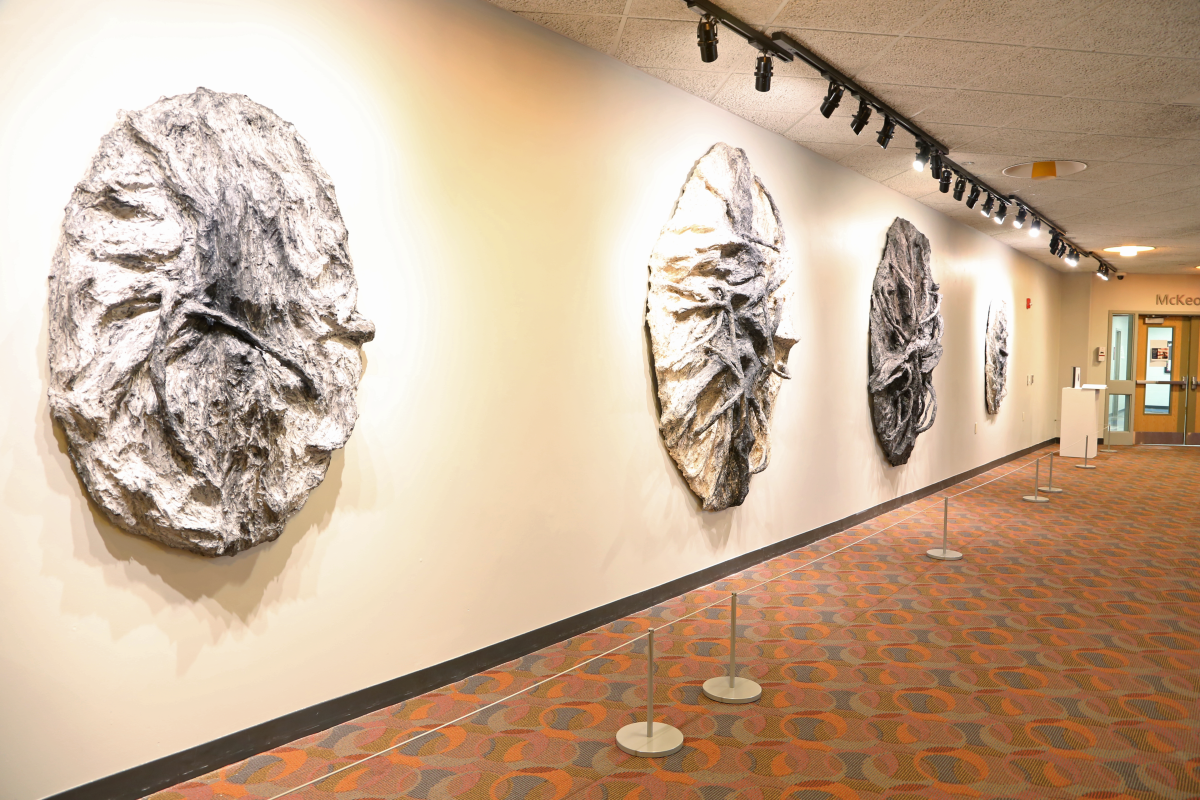
Photo by Joey Toczylowski '19
‘The Forest of History’ reflects views on society and belonging
By Molly Ledbetter, ’17
Myung Gyun You’s “The Forest of History” is currently on display in Merion Hall. He welcomes the viewer into a world of natural exploration, and, in doing so, shares his perspective on life and human existence.
Gyun You’s artistic inspiration comes from his frequent contemplation of energy in human society, as well as concepts of nationality, belonging, and the role that history plays in both. He questions why a person must belong to one place or another and attempts to tackle such unanswerable questions through his art.
Gyun You spoke passionately about his love of hiking and spending time in nature. When he started to lose his way as an artist after living as a businessman in Japan for ten years, Gyun You said he found long-lost inspiration lurking in the natural world, where he spent hours upon hours sketching and “simply being.”
Gyun You said it was during those frequent hikes that he contemplated the ever-present labels that attempt to define human beings. In nature, Gyun You is able to escape these notions.
“I don’t have a nationality in nature,” he said. “I am only a creature.”
In creating his art, Gyun You tries to isolate his thought process from external influences regarding race, religion, and politics. He tries to understand categories of belonging and topics that fill and influence our everyday thought. In doing so, Gyun You “may objectively explore [his] world and [his] roots.”
There are many different types of energies represented in his show. The opening piece, a blue painting filled with movement and splatter, embodies a volcanic eruption. The paint almost jumps off the canvas in Gyun You’s rendering of the dynamic occurrence in nature. While much of Gyun You’s artwork serves as an imitation of his various encounters with nature, Gyun You thinks of this volcanic representation as an illusion rather than a direct imitation.
Unlike his drawings of still subjects, the active ones in this collection represent fleeting moments. What Gyun You records on paper is a moment that has already passed, a memory. This quality of his art aligns with his perspective on life—that everything “come[s] from nothing and disappear[s] back into nothing. There is only energy existing, because everything is changing, each moment like an Infinite Evolution.”
Further in the show are the still subjects Gyun You captured, such as tree roots and bark. Yet still the same logic of fleeting moments applies. Sticking to this theme of energy, Gyun You’s subsequent works portray the energies of a pregnant womb and the roots of a fallen tree.
Viewers can enjoy the various energies present in this gallery uniquely free from external pomp, opinion, and influence. Gyun You’s “Forest of History” promises to leave viewers suspended in time and isolated from outside delineation, where they can take some time and simply be.